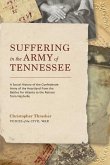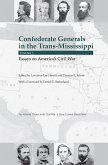Civil War historians have long noted that support for Confederacy in the antebellum South tended to align with geography: those who lived in towns, along railroads, and on land suited for large-scale farming tended to side with the Confederacy, while those who lived a more isolated existence and made their livings by subsitence farming and bartering usually remained Unionist. Bartow Country in northwest Georgia, with its distinctive terrain of valley piedmont, and Appalchian hill country, is an ideal microcosm to examine these issues.








